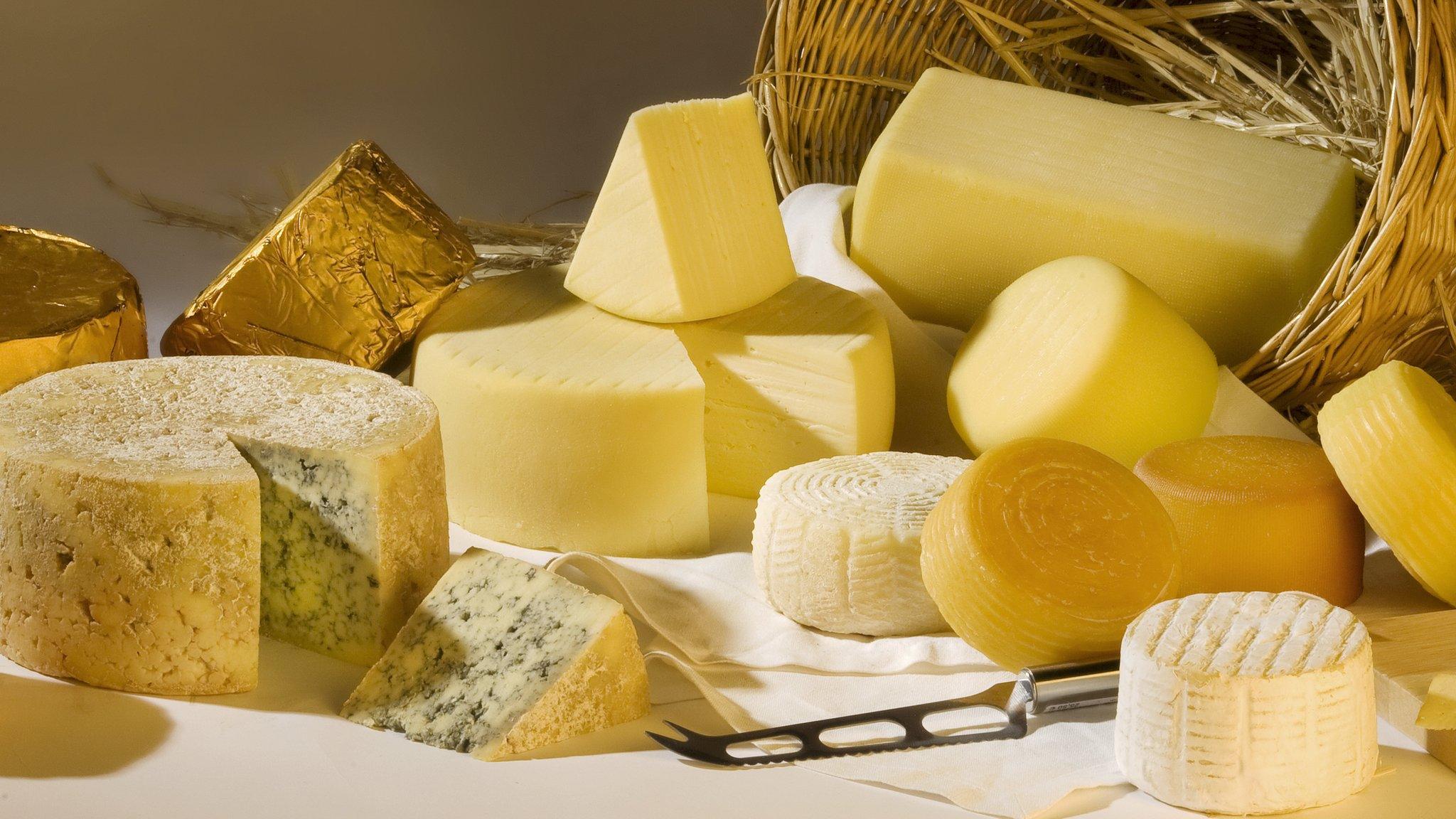What should we be eating?
- Published

With yet more conflicting advice about what makes for a healthy diet, what should we be eating to stay well?
The UK government recently reviewed its recommendations on what foods and drinks count towards a balanced diet, by looking at the available evidence.
The Eatwell Guide, external lists the five main food groups that we should be putting on our plates, and the things we should limit or avoid.
Fats/oils
Fat is a vital part of our diets. We need to eat it to keep healthy - but we shouldn't have too much of it.
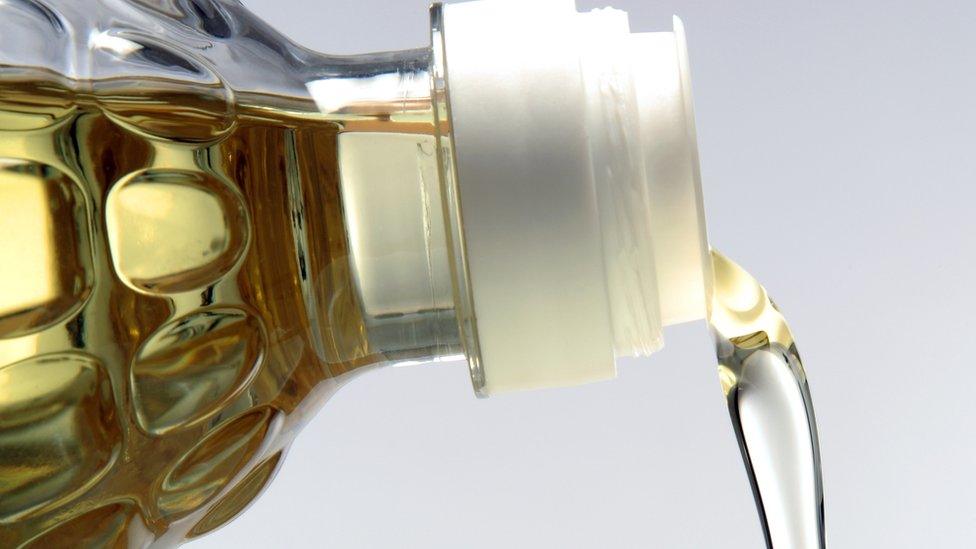
In the Eatwell Guide, fat includes oils, spreads and butter.
Unsaturated fats - olive oil and vegetable oil - are dubbed as healthier than saturated fats, such as lard, ghee and butter. But not everyone agrees.
Some argue that it is better to reach for the butter than get too fixated on the type of fat you eat. Just make sure you don't eat tonnes of it.
Fat comes from other parts of the diet too.
Dairy
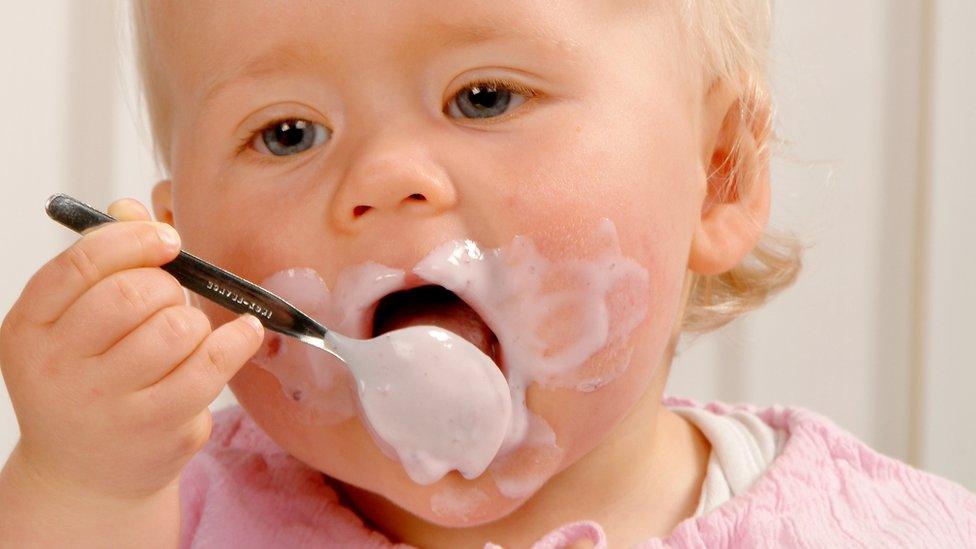
Milk, cheese and yoghurt often contain fat - but they are also good sources of protein and some vitamins as well as calcium, which is good for our bones. In the Eatwell guide they make up about a sixth of the food we should eat.
Some dairy foods, even if they are low fat, may be loaded with added sugar.
Ideally, go for lower fat and lower sugar products, such as plain yoghurt.
Carbohydrates
This is another controversial food group which has been a source of conflict between diet advisors.
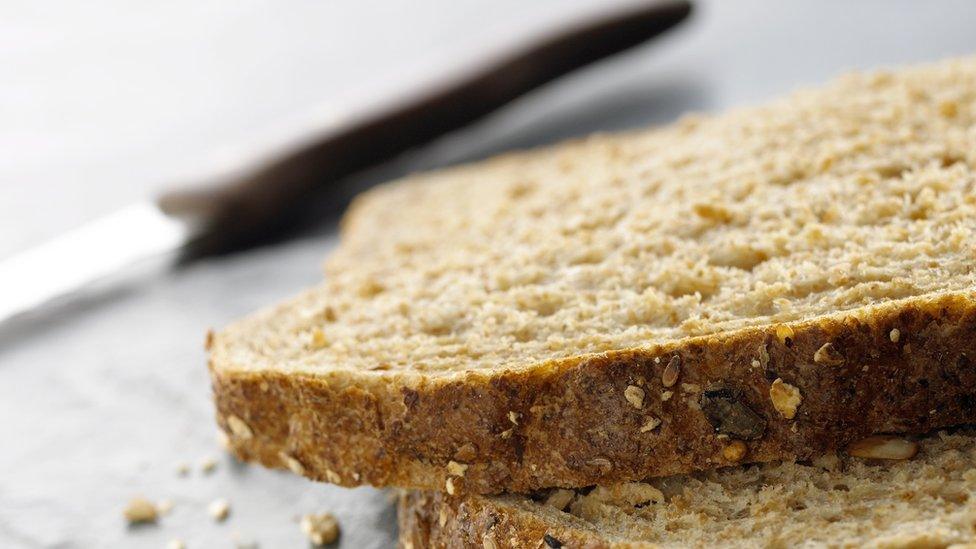
Some say there has been too big a focus on starchy foods such as pasta, bread and potatoes and that too much of these foods can cause blood sugar to rise, increasing the risk of diabetes.
The government says starchy foods are a good source of energy and should make up just over a third of the food we eat.
It says we should opt for high-fibre, wholegrain varieties - such as brown rice and jacket potatoes.
Fruit and veg
This is the category of food that we should eat the most of - yet many of us still aren't getting enough fruit and vegetables.
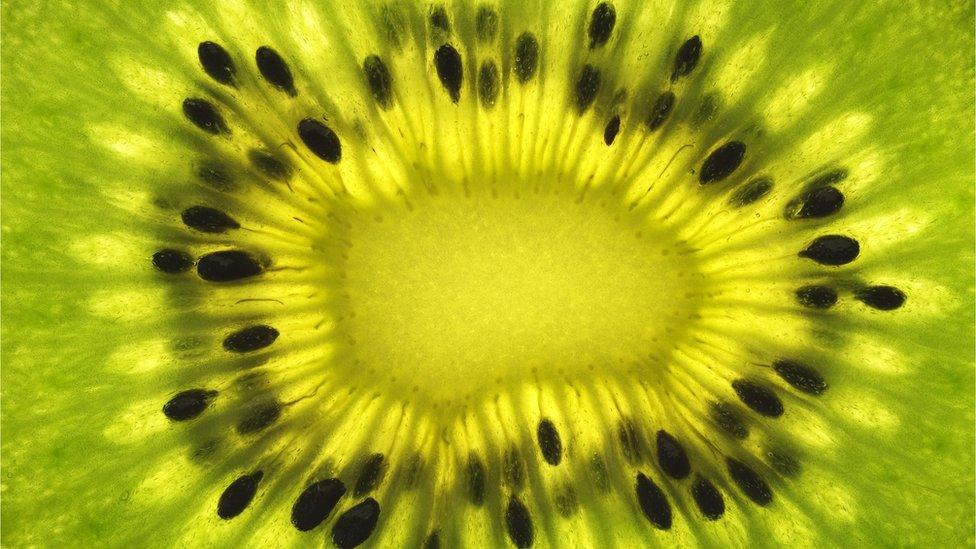
They should make up over a third of the food we eat each day because they are packed with vitamins, minerals and fibre. While there is no exact formula, aim to eat at least five portions a day and you can choose from fresh or frozen.
Take care with tinned, dried or juiced fruit because it can contain a lot of sugar. That's why you should limit fruit juice or smoothies to no more than 150ml a day.
Protein
Meat is an obvious choice, but fish, beans, pulses, eggs and nuts, as well as tofu and bean curd, are other sources of protein.
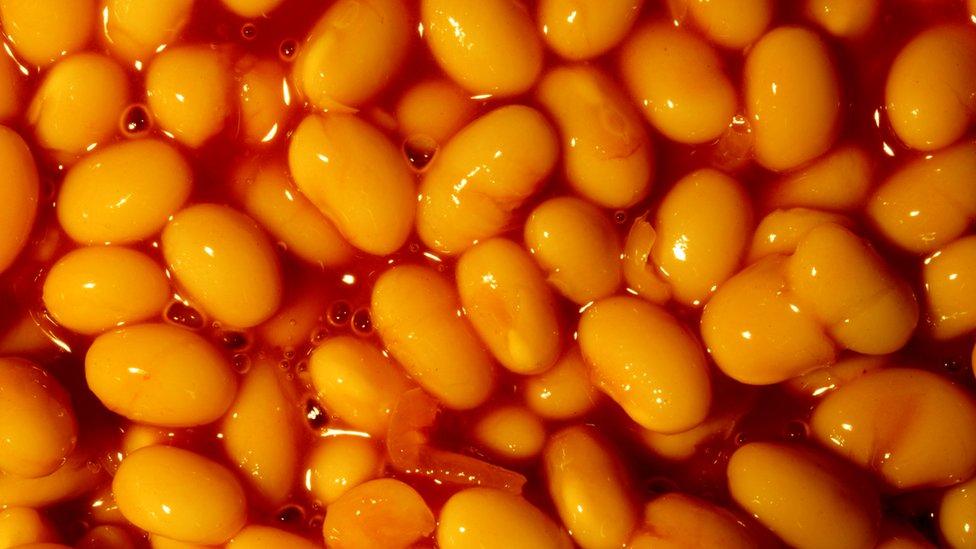
Again, think about what else the food contains - meat can be fatty or processed and some tinned beans can be covered in sugary sauce.
Try to go for lean cuts of meat rather than pies or pate.
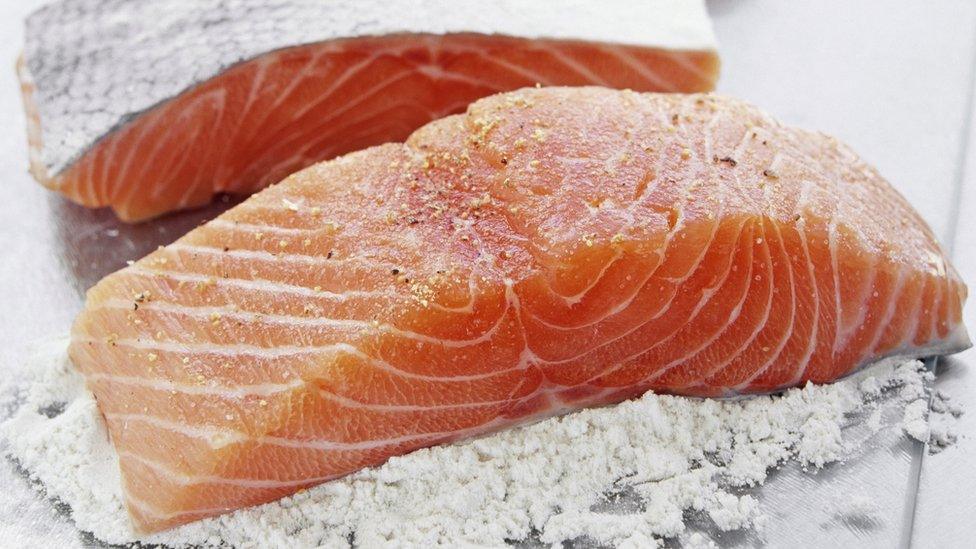
Although oily fish, such as salmon and sardines, is very good for us we should not eat more than four portions a week. Oily fish can contain low levels of pollutants from the sea that can build up in the body if we eat too much.
Foods to avoid
The obvious treats and snacks to limit or cut down on are things like cakes, chocolate, crisps and sugary soft drinks.
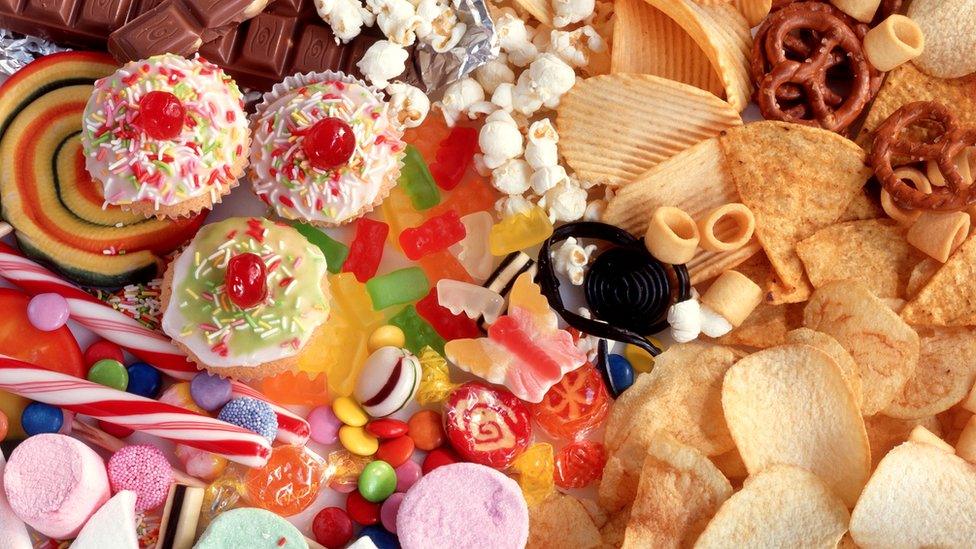
There are lots of processed foods that contain high amounts of salt, fat and sugar, but it is not always immediately obvious to the consumer.
Check the nutritional labels on sauces, ready meals, breakfast cereals and sandwiches to help you choose healthier options.
In real life, products often contain a mix of different food groups. For example, a meat pizza will contain carbohydrates, fat and protein as well as sugar and salt.
Preparing food yourself from scratch may be time consuming, but it lets you know what you are putting in your recipe and your mouth.
What to drink
Adults should drink about six to eight cups of water a day. Tea and coffee can count towards this.
Fruit juice can also count, but have no more than a glass a day because it will also contain sugar.
Alcohol is not included in the Eatwell Guide. It is worth remembering that some alcoholic drinks can be high in sugar.
The government says men and women who drink regularly should consume no more than 14 units a week - equivalent to around six pints of beer or seven glasses of wine.
What about calories?
The Eatwell Guide contains a chart of guideline daily energy requirements for children, men and women.
How much energy you need will depend on how big and how active you are. As a general guide, men should get around 2,500kcal per day from the food they eat and women around 2,000kcal.
Most pre-packaged foods will list the calories on the nutrition label.
Portion sizes are also important - you can have too much of a good thing.
Follow Michelle on Twitter, external
- Published23 May 2016
